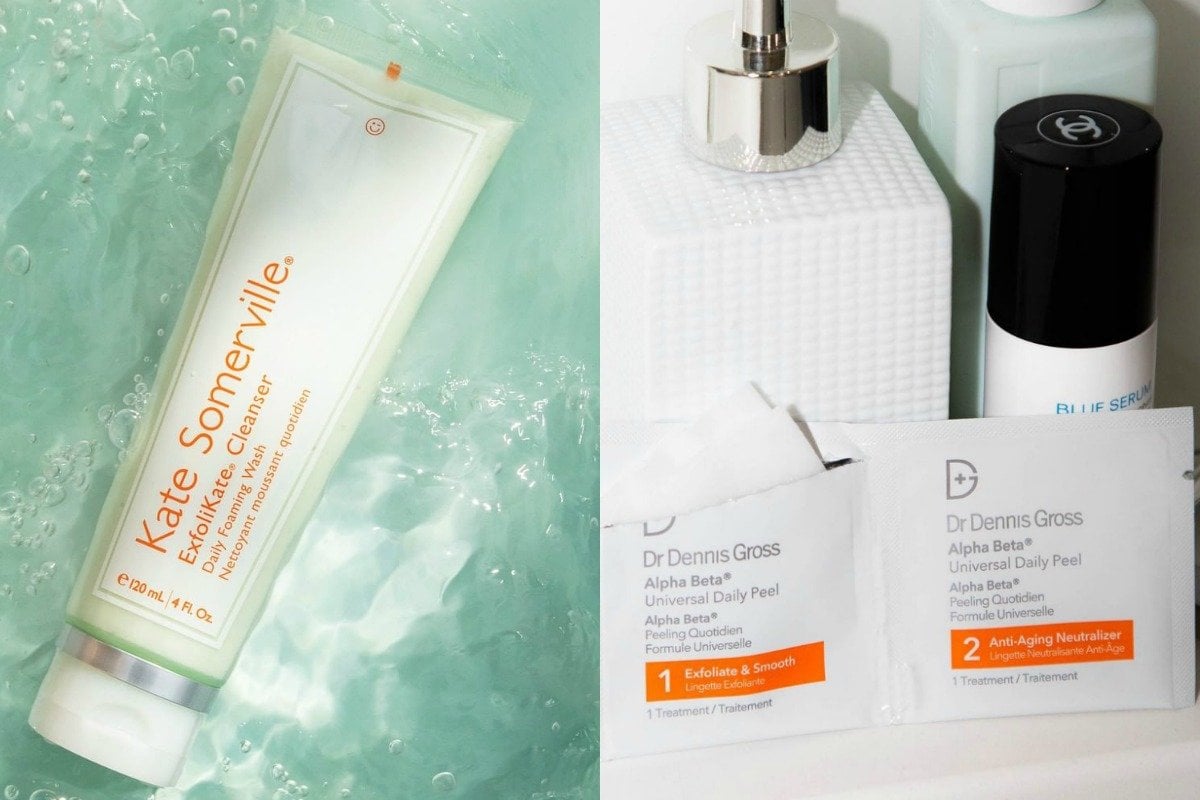
If you ask any beauty editor, they'll tell you that exfoliating is a non-negotiable step in your skincare routine. Whether that be a physical or chemical exfoliant, you'll want to use one regularly.
Not only is it a crucial product to get clear, glowy skin but it also makes your skin feel so damn smooth.
Watch: Here are seven ways to improve your skin while sleeping. Post continues below.
When it comes to choosing the right exfoliator, you need to consider your skin type and what exfoliator will suit you specifically. So to make things easy, we're here to share everything you need to know about exfoliators and the best ones on the market.
What does an exfoliator do?
To put it simply: an exfoliator removes the buildup of dead skin cells.
Why should you exfoliate?
While your skin sheds dead skin cells regularly, it doesn't get them all. And the leftovers can tend to accentuate fine lines and make the skin look dull. So you want to exfoliate multiple times a week to remove the buildup of dead skin so that your skin looks even, clear and glowy.
Not to mention, if you apply your serums and moisturisers on top of those layers of dead skin, they won't penetrate through and do their job properly. So you really should exfoliate.
What is a physical exfoliator?
A physical exfoliator is any exfoliating product that requires you to manually scrub it into the skin. Think, your traditional facial scrubs, powders and brushes.




























































































